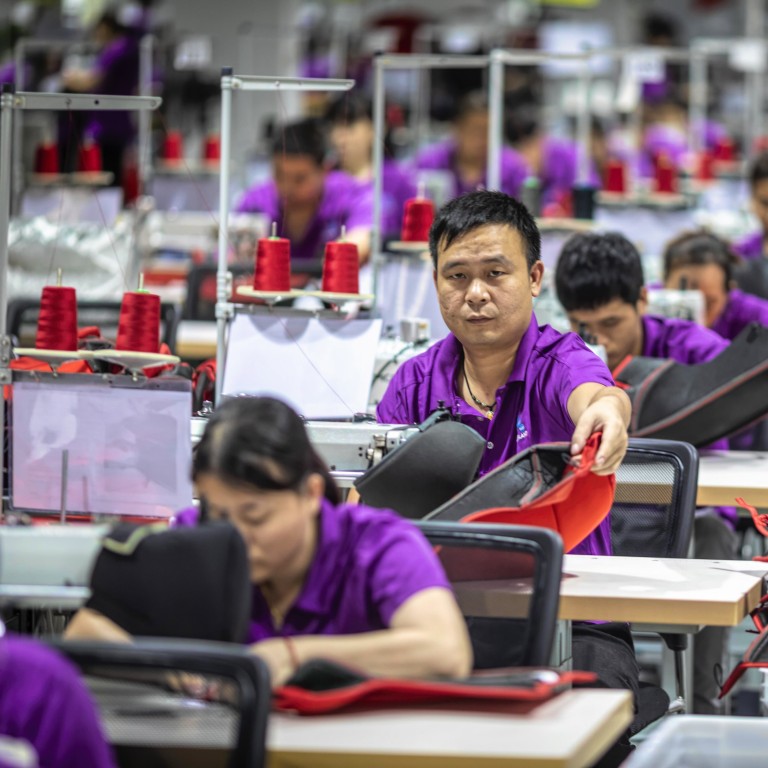
Private borrowers bear the brunt of China’s soaring bond defaults as slowing economy and trade war put the squeeze on finances
- Thirty private businesses missed payments on 89 bonds valued at a combined 60 billion yuan (US$8.7 billion) so far this year, a rise of 150 per cent from the same period in 2018
- That’s more than the state-owned enterprises that missed eight bonds valued at 10 billion yuan, and topping last year’s 126 defaults worth 11.4 billion yuan
China’s corporate borrowers, especially non-state companies, are missing a record number of bond payments, as business conditions worsened amid the slowest economic growth pace in three decades, while a year-long trade war with the US crimped the biggest market for many exporters.
Thirty private businesses missed their repayment obligations on 89 issues valued at a combined 60 billion yuan (US$8.7 billion) so far this year, an increase of 150 per cent from the same period in 2018, according to data by Shanghai Wind Information. That’s more than the state-owned enterprises that missed eight bonds valued at 10 billion yuan, and topping last year’s 126 defaults worth 11.4 billion yuan.
“The reality on the ground is that thousands of private companies are facing difficulties in sustaining their business growth this year, because of declining sales and narrower profit margins,” said Eric Han, a senior manager with business advisory firm Shanghai Suolei. “Business morale appears to be low among entrepreneurs who are reluctant to invest in business expansion.”
Defaults are likely to rise further, after China’s economy expanded 6.2 per cent in the three months ended June, the slowest quarterly pace since record-keeping began in 1992, analysts said.
The US-China trade war continues to weigh on entrepreneurs although the two countries agreed to resume economic and trade talks in June.
On China’s US$13 trillion onshore bond market, defaults are seen as a potential cause of social unrest despite repayment failures making up only a small portion of the total debt.
It was not until March 2014 that China's bond market saw its first default, when Shanghai Chaori Solar Energy Science & Technology failed to make an interest payment. Before that, the authorities had stepped in to bail out struggling corporate borrowers with cash injections or restructuring plans.
Four decades of Chinese capitalism show how trade benefits all
The number of defaults on China’s bond market have been rising over the past five years. Chinese officials including the central bank’s vice governor Pan Gongsheng said that Beijing would control the amount of bond defaults in 2019, using both legal and market means.
In January, a 3 billion yuan bond default by China Minsheng Investment Group, an investment conglomerate backed by 59 powerful private firms, added to investors’ concerns about the financial health of the debt market.
China’s private businesses will face more difficulties in obtaining fresh loans in the second half to refinance the debt they borrowed earlier, even as Beijing remained determined to reduce risks in the financial system.
China’s total debt burden was equivalent to 304 per cent of the country’s gross domestic product (GDP) in the first quarter, up from 297 per cent a year ago, according to estimates by the Institute of International Finance.

